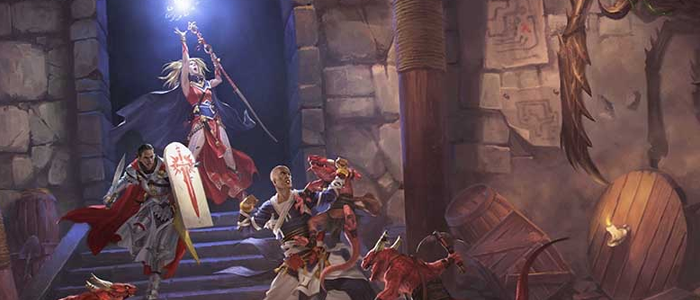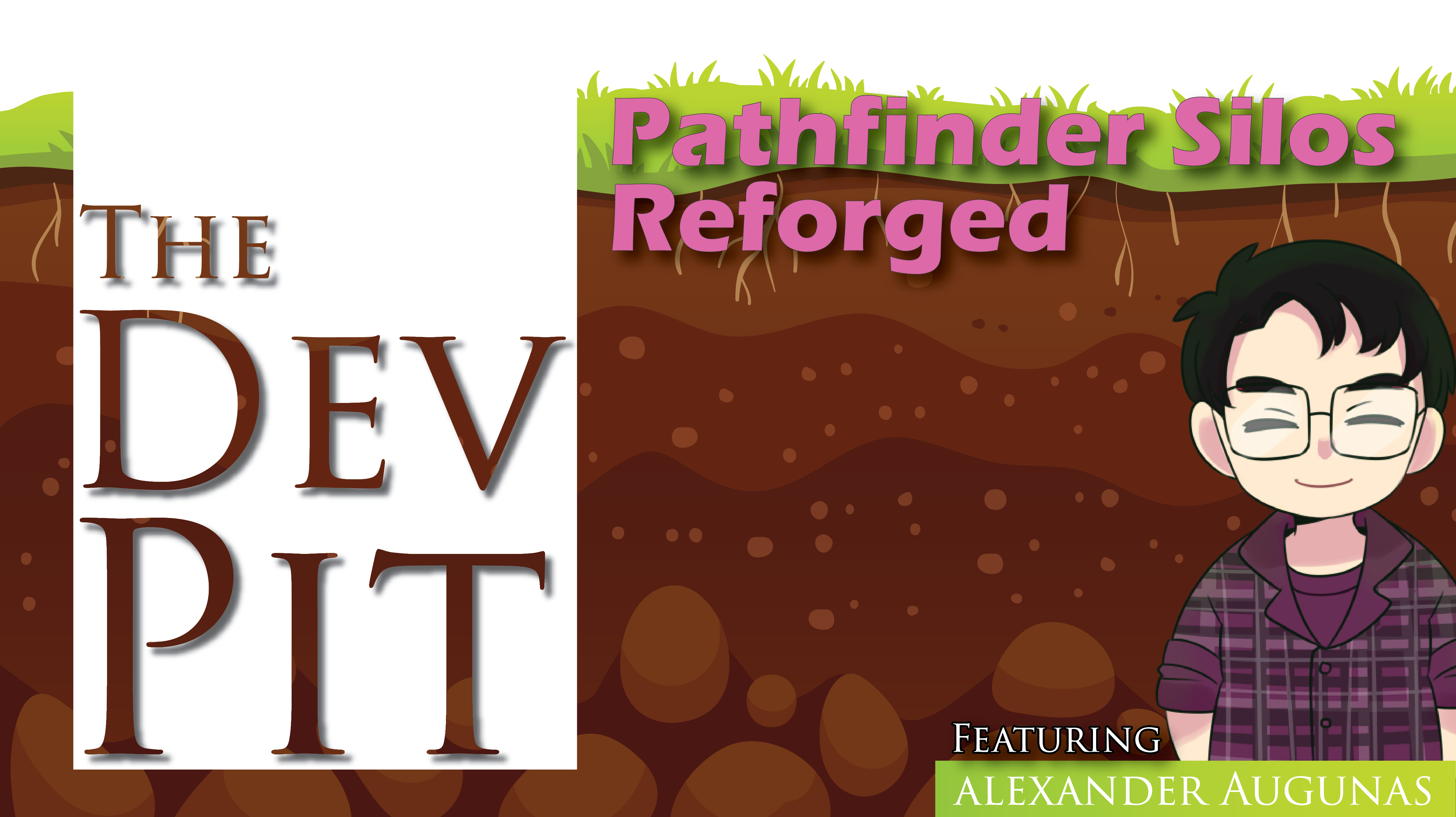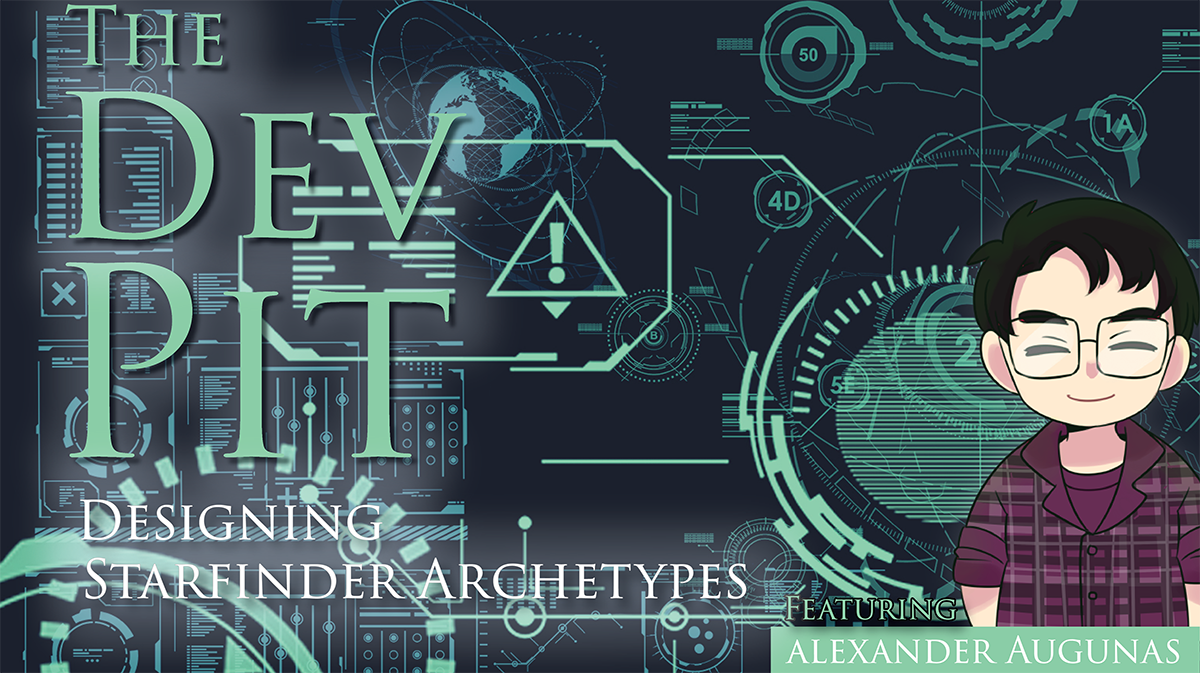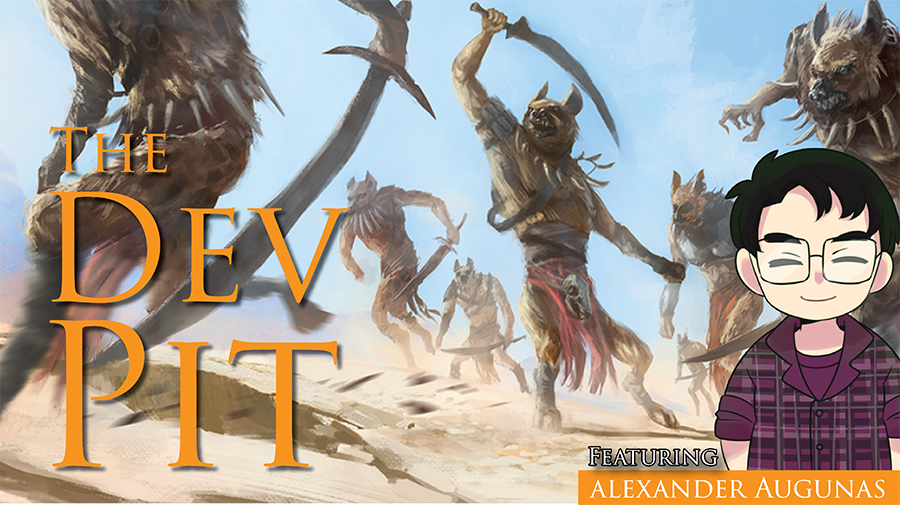Hello everyone, and welcome to Dev Pit! I’m Alexander Augunas, the Everyman Gamer, and today we’re going to be talking about something a little unorthodox for this column. Normally when I do Dev Pit articles, I focus most of my energy talking about game design principles and how to use that to make your content better. But for a moment, let’s skip to the other side of the story: the customers. I don’t want to take a stab at guessing how many of our readers have ever purchased a Third-Party product before, but based on sales records that I’ve seen (both my own and others) and knowledge of how many people read my Iconic Design articles in a given month, and my guestimate is, “Less than 5% of you.” But maybe I’m totally wrong and there’s an avid 3PP-consuming population reading these articles! If there is, you might be asking yourself the question, “Gee Alex, how can I help get that percentage to go up?” Well totally theoretical customer who I’m totally not praying is real, let’s go over some important things that people can do to support their favorite Third-Party Publishers! (Or any publisher, really. I guess none of this stuff is really restricted to 3PP.)
Tip #1 — Buy Stuff
Surprise! Money is the best way to support anyone. One of the biggest mistakes that I see customers make is assuming that we 3PP publishers are obviously rolling in money simply because they saw our advertisement. That DEFINITELY isn’t true. I don’t want to disclose Everybody Games’s finances here, but to set the record straight the best month I’ve EVER had pulled in like $2,500 for a month. To put that into perspective, a 40 hour a week job that pays $15 nets $2,400 a month before taxes, so while the money’s okay it’s not like Everybody Games is rolling (and real talk, WAY more months have been half that).
So if you like a publisher, the best thing you can do is support them financially. With money. On a regular basis. Obviously don’t put yourself broke for roleplaying game products, but keep in mind that in our industry a “smash hit” product sells like 500 copies. The bar’s low. Real, real low guys.
Tip #2 — Use Social Media Smart
Ah, social media. We all love to hate it, don’t we? Well the truth of the matter is that social media is the most cost-effective way for Third-Party Publishers to get their message across to you. Now, you might have hard that social media platforms have algorithms that decide what content to show you while you’re scrolling through. That is 100% true, and those algorithms SUCK. Basically, they prioritize two things: interaction and paid boosts. A paid boost is basically slipping Facebook a $20 in order to get them to show one specific post to social media users more often. Yes, simply liking or following your favorite people or companies isn’t enough; Facebook will prevent you from seeing their content if they don’t pay what is essentially a social media toll, and it sucks.
Now, most of us 3PP simply don’t have the money to pay Facebook’s toll; of the people I know, I think only Legendary and the d20PFSRD have the income to boost posts regularly though I don’t know if they do. So to combat this, what many 3PP do is to post on a schedule for the customer’s benefit. Many of us pick a day and simply talk about new products on those days. For example, Rogue Genius Games typically does product announcements on Mondays (Tuesdays if a holiday occurs in a week, as with Labor Day and their new Pyreborn product), Legendary Games typically announces stuff on Fridays, and Everybody Games does product announcements on Thursdays. Knowing when your favorite 3PP tends to put up new product and checking their page on those days can be extremely helpful to the 3PP, especially when combined with algorithm manipulation tactics, or simple “interactions”.
All social media platforms are more likely to show posts to people if those posts are being interacted with. For Twitter and Instagram, it’s likes and comments. For Facebook, it’s shares and positive emotes. Most social media don’t care about the content; the interaction is all that’s needed to boost the post. This is why if you watch my posting on Everybody Games posts, you’ll often see me replying and interacting with fans who post on my posts. The more conversation that happens on a post, the more “interaction” the post generations, and the more interaction generated the more people the post is put in front of, which increases the chance that the post is interacted with. It’s a vicious, vicious cycle. Hilariously enough, negative comments are still content that will boost a page, so if someone is posting on an Everybody Games’s product telling me that I’m furry trash for putting a kitsune on the cover or whatever, that comment is actually going to generate me more views in the long-term. (Especially because I’m fond of commenting on troll posts in a way that provokes them to keep posting on my page; not only does this usually get them suspended or banded, but it also games Facebook’s interactions to make my post appear more often to actual customers.)
Speaking of Facebook, the little emotes you can leave on posts? Like, Love, Haha, Wow, and Angry? Those have their own interest system too. For example, “Liking” something actually doesn’t increase interaction with a page, but leaving Love, Haha, and Wow do. So if you want to help a creator boost a Facebook post, try leaving a Love, Haha, or Wow emote instead of just a Like. Now, the WORST part about Facebook is that they change the algorithm ALL the time. There was a good 3 month period where Facebook’s algorithm prioritized posts with videos over those with images or simple text content, for instance. Facebook changes their rules all the time, so it’s helpful to try and stay cognizant of how Facebook decides what sort of content to show you and game them appropriately.
Tip #3 — Leave Reviews
One of the biggest problem in internet culture is this idea that your voice and opinions don’t matter if all you have to say is positive or affirming. As a result, it is MUCH more common to see product reviews from non-professionals that critique and tear down content then praise it. This is likely due to it being easier to identify what one dislikes then what one likes. But let me tell you, folks, while a bit of constructive criticism never hurt anyone, more often the information about what you liked is more useful because it lets us know what to keep doing. If all we see are dislikes, then chances are we’re going to change our formula or approach. This could mean that something you liked never gets done again.
When you’re leaving a review, try to be specific about what you liked and didn’t like and why. A review that says, “I didn’t like this archetype because it looks like it would break games because of X, Y, and Z” is more useful than, “This archetype is broken and that’s bad.” The former gives us detailed information that we can use to fix the problem, or identify if the “problem” is that our content just isn’t a good fit for your table. The later is just a tear-down, and might discourage an author from trying something you might of liked.
Finally, let’s talk ratings. Specifically stars. Stars aren’t a great metric because there’s no standardized concept for what a star means. It can be VERY subjective, and that isn’t always a bad thing. But it helps to remember that generally speaking, the average reader sees a 5-star review for a 3PP product as, “This is worth my time buying” even though the same scrutiny doesn’t necessarily apply to First-Party Products. The truth of the matter is that 3PP are often held to a higher standard than their associated 1PP in our business, so when you’re reviewing a product it’s helpful to think of a 4-star review as, “You should buy this product” and a 5-star review as, “This product is a great product you would like.” Maybe someday we’ll get some sort of universal scale of reviewing, but for now this is what we got.
In conclusion,
Supporting 3PP isn’t always very obvious in terms of behavior, and it certainly stinks that sometimes supporting your favorite 3PP could mean purchasing a product or two that you don’t have an immediate use for. However, remember scale. Your typical 3PP probably brings in enough money for several people at most to live off of, and not luxury living; middle class if you’re lucky, a part time minimum-wage job if we’re being realistic. Most 3PP (myself included) produce product not out of a desire for money, but because we genuinely want to provide the community with cool stuff that, for whatever reason, Big Corp TTRPG doesn’t want to take risks on.
I won’t be idealistic and pretend that supporting 3PP could revolutionize the game industry, but watch your favorite Paizo authors. Jason Keeley talks all the time about his Blades in the Dark games, which is a Tabletop RPG written by Evil Hat Productions, a smaller company. Jason Bulmahn literally snaps picks of several Tabletop RPGs he’s picked up and is reading per week. Games like Shadows of the Demon Lord and Blades in the Dark aren’t written by 3PP companies; by definition, they’re First-Party Companies because they’re producing their own games themselves. But it goes to show you how small publishers can produce things of great value to our hobby, and maybe that freelancer or newbie publisher you support by buying a few $2 Pathfinder Second Edition products from them will turn around and use that money to make the next hot Indy Tabletop RPG. Tabletop RPG Talent doesn’t spring from nowhere; it’s refined based on practice and feedback that can only exist in this ecconomy by fans of the medium supporting them.

Alexander “Alex” Augunas has been playing roleplaying games since 2007, which isn’t nearly as long as 90% of his colleagues. Alexander is an active freelancer for the Pathfinder Roleplaying Game and is best known as the author of the Pact Magic Unbound series by Radiance House. Alex is the owner of Everyman Gaming, LLC and is often stylized as the Everyman Gamer in honor of Guidance’s original home. Alex also cohosts Know Direction: Beyond with Perram and James Ballod. Follow Alex’s Twitter @AlJAug!
Creative Commons Credit: Android Netrunner Freelancer by arvalis







Great article. I’m sending the link to some friends to make sure they read it. We use a fair amount of 3PP products for our games, usually just for the GM though to liven things up for the players.